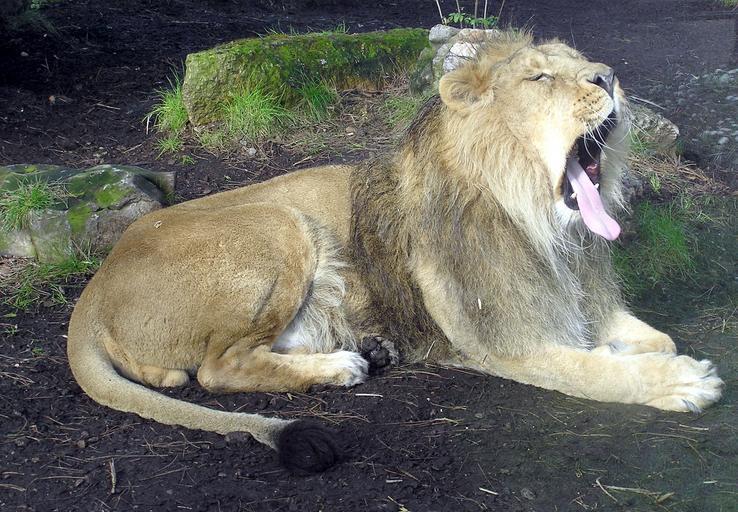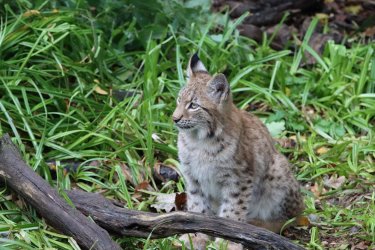Lions In Captivity: Unveiling the Captivating World of These Majestic Beasts
Lions in captivity are a controversial topic, as they are both beloved and feared. Captive lions are kept in zoos, circuses, and private collections, and their presence has been a source of debate for many years. On one hand, captive lions provide an opportunity for people to observe and learn about these majestic animals in a safe environment. On the other hand, captivity can be detrimental to the physical and mental health of lions, and some argue that it is an unethical practice. This article will explore the pros and cons of keeping lions in captivity, as well as the ethical implications of doing so.
The Pros and Cons of Keeping Lions in Captivity
The debate over whether or not to keep lions in captivity has been ongoing for many years. On one hand, there are those who argue that keeping lions in captivity is beneficial for both the animals and humans. On the other hand, there are those who argue that keeping lions in captivity is cruel and inhumane. In order to make an informed decision, it is important to consider both the pros and cons of keeping lions in captivity.
The Pros
One of the primary benefits of keeping lions in captivity is that it allows for the conservation of the species. Lions are an endangered species, and keeping them in captivity can help to ensure their survival. Additionally, keeping lions in captivity can provide a safe environment for them to live in, away from the dangers of the wild. This can help to ensure their health and well-being.
Furthermore, keeping lions in captivity can provide educational opportunities for people. By visiting zoos and other facilities, people can learn more about lions and their behavior. This can help to raise awareness about the importance of conservation and the need to protect these animals.
The Cons
One of the primary drawbacks of keeping lions in captivity is that it can be cruel and inhumane. Lions are naturally wild animals, and keeping them in captivity can be stressful and confining. Additionally, lions in captivity may not have access to the same resources that they would have in the wild, such as food and space. This can lead to health problems and other issues.
Furthermore, keeping lions in captivity can be expensive. Zoos and other facilities must provide adequate space and resources for the animals, which can be costly. Additionally, there is the risk of the animals escaping or becoming ill, which can also be expensive.
In conclusion, there are both pros and cons to keeping lions in captivity. It is important to consider both sides of the argument before making a decision. Ultimately, the decision should be based on what is best for the animals and the people involved.
The Impact of Captive Lion Breeding Programs on Wild Populations
Captive lion breeding programs have become increasingly popular in recent years, with many people believing that they can help to conserve wild lion populations. However, there is a growing body of evidence that suggests that these programs may actually be detrimental to wild lion populations.
The primary concern with captive lion breeding programs is that they can lead to the release of captive-bred lions into the wild. This can have a number of negative impacts on wild lion populations. Firstly, the release of captive-bred lions can lead to the introduction of diseases and parasites into wild populations, which can have a devastating effect on their health and numbers. Secondly, the release of captive-bred lions can lead to the disruption of existing social structures within wild populations, as the captive-bred lions may not be familiar with the existing social dynamics. This can lead to increased levels of aggression and competition, which can further reduce the numbers of wild lions.
In addition to the potential negative impacts on wild lion populations, there are also ethical concerns associated with captive lion breeding programs. Captive-bred lions are often kept in small enclosures and are not provided with the same level of care and enrichment that wild lions would receive. This can lead to a range of welfare issues, such as poor physical and mental health, which can be detrimental to the overall wellbeing of the lions.
Overall, it is clear that captive lion breeding programs can have a number of negative impacts on wild lion populations. Therefore, it is important that any such programs are carefully monitored and regulated to ensure that they do not have a detrimental effect on wild populations. Furthermore, it is essential that any captive-bred lions that are released into the wild are carefully monitored to ensure that they do not have a negative impact on existing wild populations.
The Challenges of Providing Appropriate Environments for Lions in Captivity
The keeping of lions in captivity is a controversial issue, with many people arguing that it is cruel and unnatural. While there are some benefits to keeping lions in captivity, such as providing a safe environment for endangered species, there are also many challenges associated with providing appropriate environments for these majestic animals.
One of the most significant challenges is providing an environment that is large enough to meet the needs of the lions. Lions are naturally social animals and require a large amount of space to roam and hunt. In captivity, they are often confined to small enclosures, which can lead to boredom, stress, and aggression. Additionally, the lack of space can lead to a lack of exercise, which can lead to obesity and other health problems.
Another challenge is providing an environment that is stimulating and engaging for the lions. Lions are intelligent animals and require mental stimulation to stay healthy and happy. In captivity, they are often deprived of the opportunity to hunt and explore, which can lead to boredom and frustration. Additionally, they may not have access to the same variety of prey that they would in the wild, which can lead to nutritional deficiencies.
Finally, providing an appropriate environment for lions in captivity requires a significant amount of resources. Lions require a large amount of food, and their enclosures must be regularly cleaned and maintained. Additionally, they require specialized veterinary care, which can be expensive.
In conclusion, providing appropriate environments for lions in captivity is a challenging task. It requires a large amount of space, mental stimulation, and resources. While there are some benefits to keeping lions in captivity, it is important to ensure that their needs are met in order to ensure their health and wellbeing.
Conclusion
In conclusion, lions in captivity can be a controversial topic. While some people believe that captivity can provide a safe and secure environment for lions, others argue that captivity can be detrimental to the health and wellbeing of these majestic animals. Ultimately, it is up to each individual to decide whether or not they believe that lions should be kept in captivity.
Read More About Lions From Wikipedia







